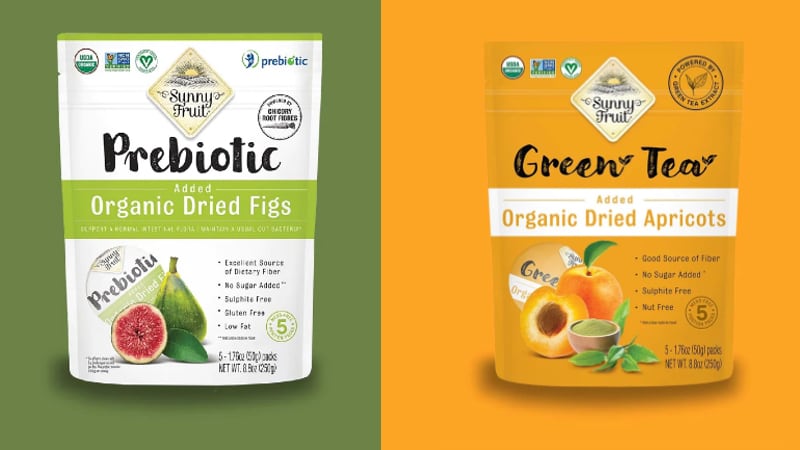Ni Lei, general manager at Zhejiang Medicine, pointed out the above at the 10th Nutrition and Health Sector Development Forum organised by the China Chamber Of Commerce For Import & Export Of Medicines & Health Products (CCCMHPIE).
The two-day forum took place concurrently with Healthplex Expo and Natural & Nutraceutical Products China 2023 in Shanghai.
Ni was presenting the topic on how pharmaceutical firms could venture into the “Big Health” sector, which includes anything ranging from vitamin, minerals, dietary supplements, to personal care products.
The company itself has been witnessing strong growth in its lutein chewable tablets in recent years. According to Ni, the target from this year onwards is to sell over 100 million boxes.
It is not just Zhejiang Medicine that has been experiencing strong growth in its “Big Health” business, where it is said to be one of the top 10 bestselling health foods in pharmacies for five years consecutively. In the seven years since it debuted, the firm has sold over 50 million bottles of the product.
Other successful examples cited by Ni included Kingdomway’s Doctor Best NMN supplement imported from the US, as well as Yunnan Baiyao with its toothpaste.
"Kingdomway is well known for producing CoQ10 as a raw material, but it didn’t transit very well into finished products, but the company managed to transit successfully [into finished nutra products] by acquiring overseas health foods broands and sell them in China via cross border e-commerce," he said.
Based on his observation, firstly, having a strong brand recognition would be key in growing China’s nutraceutical business, said Ni, citing examples such as TCM firms Xiuzheng Pharmaceutical Group and Tongrentang.
“The [reasons] for pharma companies in transiting to the ‘Big Health’ sector is no doubt led by these three factors: brand, resources, and demand.
“Firstly, some classic examples where the transition is driven by its brand presence include Renhe, Xiuzheng, and Kuihua. These enterprises are using [their] brands to fuel the entire Big Health industry.
“So the Xiuzheng that you know of now, be it on Douyin (China’s TikTok), Kuaishou, or Xiaohongshu etc are filled with each and every kind of Xiuzheng’s products, ranging from products for infant to the elderly, and Xiuzheng has covered all of them,” he said.
In fact, China consumers are drawn to brand recognition more than product formulations and ingredients – also the biggest difference from the Western consumers who would probably care more about the formulation, he noticed.
“The advantage of pharmaceutical firms transiting into the ‘Big Health’ business is first and foremost, its brand. Second, it is the amount of capital that it has, third, it is about its capability to differentiate itself.
“I feel that for pharmaceutical firms transiting to ‘Big Health’ sector, they would perhaps need to rely on the brand name.
“This is because I increasingly observed that in China, especially amid our competition with cross-border e-commerce, brand [recognition] is their priority when selecting ‘Big Health’ [products].
“In China, the first consideration when selecting ‘Big Health’ products is not your product formulation, not your product flavour or texture, not the packaging, but the level in which your brand is known.
“The consumers might not know what is inside your product but would think that they must buy a product from a particular brand, this is the classic China consumer.”
To build brand recognition, companies could do so via the social media, roadshows, commercials, and billboard placement etc.
He added that food as medicine would be the next stage of growth, citing example of Dong-e-e-jiao, where it has managed to transit from a pharma business to vegetarian product Tao Hua Ji as one of its bestsellers.
Consumer education via health professionals would also be crucial to build their knowledge of the products.
Go to where consumers are and meet their needs
On the other hand, Ni pointed out that firms, even pharmaceutical firms, should conduct ample consumer research to meet their needs and reach out to them effectively.
“The idea that China has a population of 1.4 billion and you will make money by selling two pieces of your product to each person is no longer working in China.
“In the future, our promotion channels should be wherever consumers are at,” he said, highlighting the importance of content marketing that resonate with the consumers.
In the past, the lack of consumer understanding was the reason where China firms were mainly conducting raw material instead of finished product nutraceutical business, he said.
Some examples of failure in transiting into finished product business was also due to firms overestimating their ability to do so.
Speaking of the firm’s lutein chewable tablets, Ni said that the decision was made after identifying that China has longer screen time – an average of 6.8 hours per day – as compared to other countries.
“This is why we grabbed hold of this market demand and tapped on our expertise in lutein and launched the lutein chewable tablet,” he said, adding that the target from this year was to sell 100 million bottles per year.
China’s Big Health industry to continue growing
China’s Big Health industry is expected to continue growing, though it is sometimes seen as a red-ocean market, Ni said.
Firstly, he explained that China consumers’ average consumption of “Big Health” products was only about one-fifth of the US, which meant there was still room for further growth.
Second, the government is promoting the concept of health maintenance according to life stages.
Third, the COVID-19 pandemic has increased consumers’ understanding of supplements, such as CoQ10’s heart health benefits and protein’s benefits for immune health. A similar example was seen in 2003 SARS pandemic when consumers started to have a better idea of vitamin C and its uses, he said.





